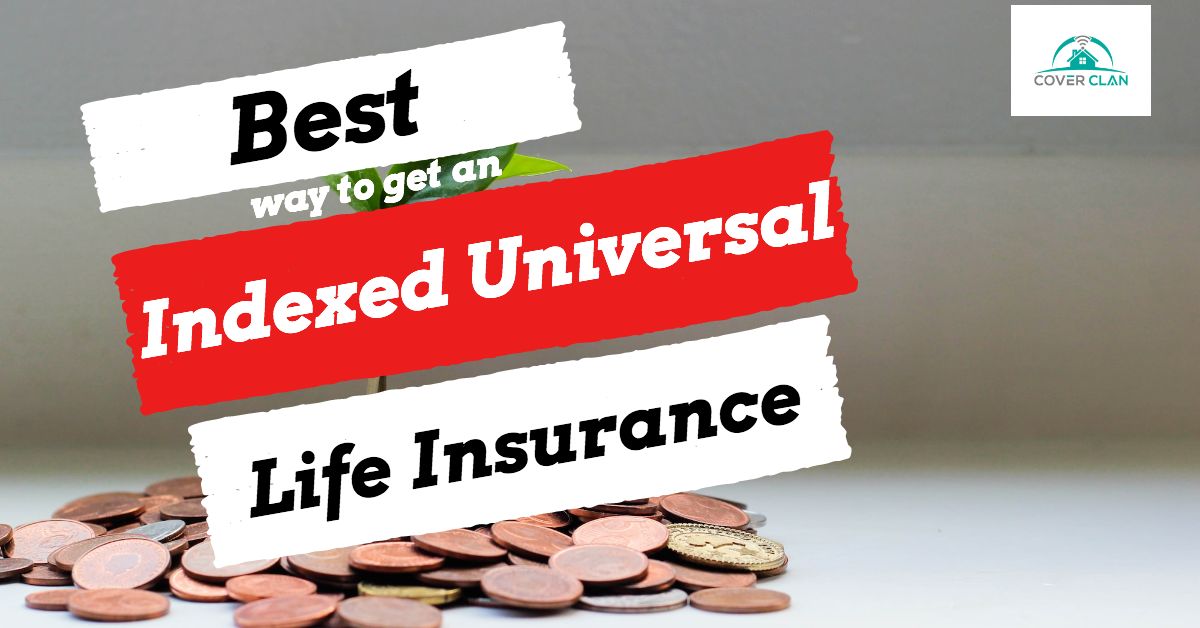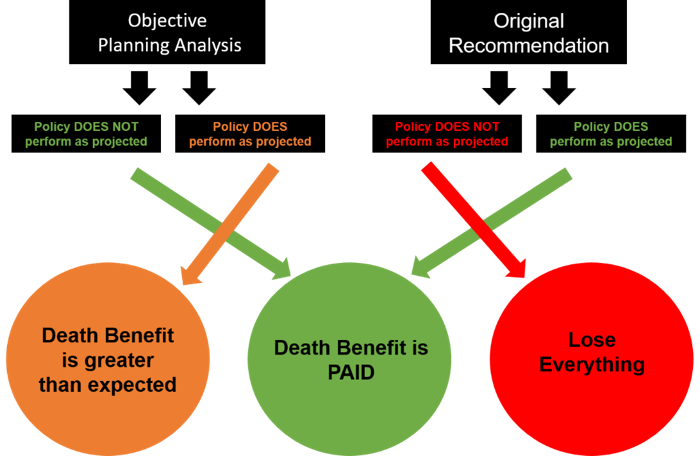All Categories
Featured
Table of Contents
Do they compare the IUL to something like the Vanguard Overall Supply Market Fund Admiral Shares with no load, a cost ratio (ER) of 5 basis factors, a turn over ratio of 4.3%, and a phenomenal tax-efficient document of distributions? No, they compare it to some dreadful proactively handled fund with an 8% tons, a 2% EMERGENCY ROOM, an 80% turnover ratio, and a dreadful document of temporary capital gain circulations.
Shared funds often make annual taxable circulations to fund owners, also when the worth of their fund has actually dropped in worth. Common funds not only call for revenue coverage (and the resulting annual taxation) when the common fund is increasing in value, yet can also impose income taxes in a year when the fund has gone down in value.
You can tax-manage the fund, collecting losses and gains in order to reduce taxed circulations to the investors, however that isn't in some way going to change the reported return of the fund. The ownership of shared funds may call for the common fund proprietor to pay estimated taxes (fidelity iul).

IULs are simple to position so that, at the proprietor's fatality, the recipient is not subject to either income or inheritance tax. The exact same tax reduction methods do not work virtually too with mutual funds. There are many, often costly, tax obligation traps related to the moment acquiring and marketing of common fund shares, traps that do not put on indexed life insurance policy.
Opportunities aren't extremely high that you're mosting likely to undergo the AMT due to your mutual fund distributions if you aren't without them. The remainder of this one is half-truths at best. While it is real that there is no earnings tax obligation due to your successors when they inherit the proceeds of your IUL plan, it is likewise real that there is no earnings tax due to your beneficiaries when they acquire a shared fund in a taxable account from you.
Signature Indexed Universal Life
The federal inheritance tax exception restriction mores than $10 Million for a pair, and growing yearly with rising cost of living. It's a non-issue for the vast bulk of medical professionals, a lot less the rest of America. There are far better ways to prevent inheritance tax concerns than getting financial investments with reduced returns. Shared funds might create earnings taxation of Social Safety and security advantages.

The development within the IUL is tax-deferred and might be taken as free of tax income using finances. The policy proprietor (vs. the common fund supervisor) is in control of his or her reportable revenue, thus enabling them to minimize or even get rid of the tax of their Social Safety advantages. This is excellent.
Below's one more very little problem. It holds true if you purchase a shared fund for state $10 per share prior to the distribution day, and it disperses a $0.50 circulation, you are then mosting likely to owe tax obligations (probably 7-10 cents per share) despite the truth that you haven't yet had any gains.
In the end, it's truly concerning the after-tax return, not just how much you pay in tax obligations. You're likewise possibly going to have more money after paying those tax obligations. The record-keeping requirements for having common funds are dramatically a lot more intricate.
With an IUL, one's documents are kept by the insurer, copies of yearly declarations are sent by mail to the owner, and circulations (if any kind of) are amounted to and reported at year end. This set is additionally sort of silly. Certainly you must maintain your tax obligation documents in instance of an audit.
Wrl Ffiul
All you have to do is shove the paper right into your tax obligation folder when it turns up in the mail. Hardly a factor to purchase life insurance policy. It's like this man has actually never ever spent in a taxed account or something. Mutual funds are typically part of a decedent's probated estate.
Additionally, they are subject to the hold-ups and expenditures of probate. The profits of the IUL policy, on the other hand, is constantly a non-probate circulation that passes beyond probate straight to one's named recipients, and is therefore not subject to one's posthumous creditors, unwanted public disclosure, or similar hold-ups and costs.
We covered this one under # 7, yet just to evaluate, if you have a taxed common fund account, you should place it in a revocable trust fund (or perhaps easier, use the Transfer on Death designation) in order to prevent probate. Medicaid disqualification and lifetime revenue. An IUL can provide their proprietors with a stream of revenue for their entire lifetime, no matter the length of time they live.

This is beneficial when organizing one's events, and converting assets to revenue before an assisted living home arrest. Shared funds can not be converted in a similar fashion, and are often thought about countable Medicaid assets. This is an additional foolish one supporting that bad individuals (you recognize, the ones that require Medicaid, a federal government program for the bad, to spend for their assisted living home) must make use of IUL instead of common funds.
Life Insurance Stock Market
And life insurance policy looks horrible when compared fairly versus a pension. Second, individuals who have money to acquire IUL over and past their retirement accounts are going to have to be terrible at handling cash in order to ever qualify for Medicaid to spend for their assisted living home costs.
Chronic and terminal illness rider. All plans will allow an owner's simple accessibility to money from their plan, usually waiving any kind of abandonment fines when such people endure a major health problem, require at-home care, or become confined to an assisted living home. Mutual funds do not offer a comparable waiver when contingent deferred sales charges still relate to a common fund account whose owner needs to offer some shares to money the prices of such a remain.
What's The Difference Between Whole Life And Universal Life Insurance
Yet you get to pay even more for that advantage (rider) with an insurance coverage policy. What a fantastic bargain! Indexed global life insurance policy gives death benefits to the recipients of the IUL proprietors, and neither the owner neither the recipient can ever lose cash because of a down market. Mutual funds provide no such guarantees or fatality advantages of any kind.
Currently, ask on your own, do you really require or desire a fatality advantage? I definitely don't need one after I get to financial freedom. Do I want one? I expect if it were affordable enough. Naturally, it isn't cheap. Generally, a buyer of life insurance policy pays for truth price of the life insurance policy advantage, plus the expenses of the policy, plus the earnings of the insurance policy company.
Universal Life Insurance For Seniors
I'm not completely sure why Mr. Morais tossed in the entire "you can not shed money" once more here as it was covered fairly well in # 1. He just intended to repeat the most effective marketing factor for these points I expect. Once more, you don't shed nominal dollars, but you can shed actual dollars, in addition to face serious chance cost because of reduced returns.

An indexed universal life insurance policy owner may exchange their policy for an entirely different policy without triggering earnings taxes. A common fund owner can stagnate funds from one common fund firm to another without offering his shares at the former (therefore setting off a taxed event), and repurchasing brand-new shares at the last, typically based on sales costs at both.
While it is true that you can trade one insurance coverage policy for another, the reason that individuals do this is that the very first one is such a dreadful policy that also after getting a new one and experiencing the early, negative return years, you'll still come out ahead. If they were sold the appropriate policy the very first time, they shouldn't have any kind of wish to ever before exchange it and experience the early, unfavorable return years once more.
Latest Posts
Universal Life Brokers
Universal Life Policy Vs Term
Best Guaranteed Universal Life Insurance Companies